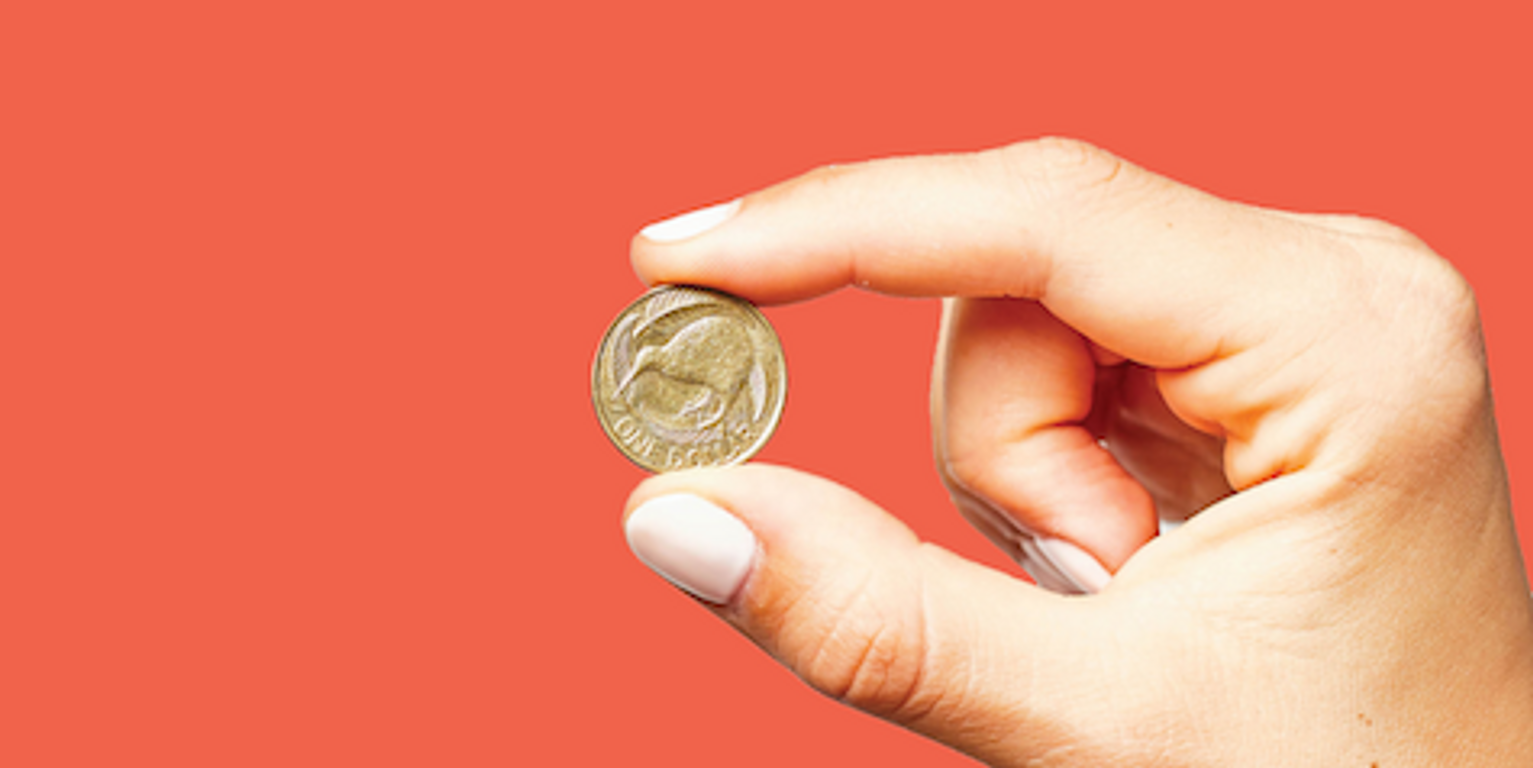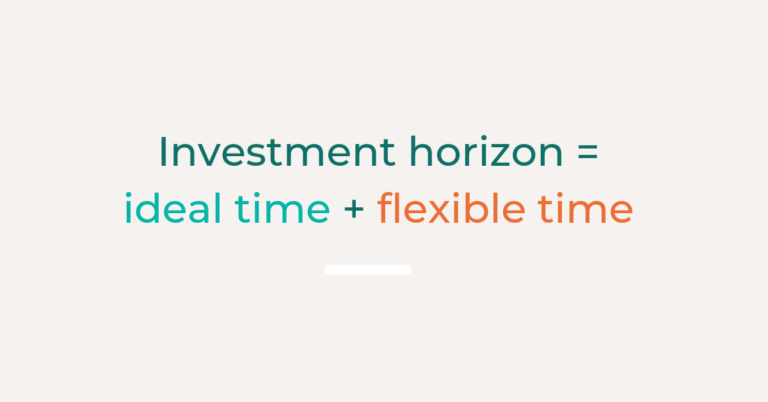How to Prioritise Your Financial Goals
Want to improve your financial situation but not sure how where to start? Check out the Kernel guide...

Ben Tutty
6 October 2022

Successful investing isn’t as hard as you think. In this blog (part one!) we will walk you through key concepts and handy tips to help you become a successful and more confident investor.
So let’s start at the beginning.
"If you invest in something, or if you invest a sum of money, you use your money in a way that you hope will increase its value, for example by paying it into a bank, or buying shares or property." - Collins Dictionary
Essentially, you are giving your hard earned money to a company with the intention that they will provide you with more money, a return, in the future.
Let’s be clear, investing is different from saving or trading.
Savings in a bank account can be a great place to start. Investing is riskier than saving money, but history shows over the longer term you will be rewarded for taking on the extra risk of investing.
Trading is about picking stocks, trying to beat the market and buying into those hot stock tips from a friend. It’s all about speculation and short term gains. It’s not for the faint hearted, it’s high risk, and it’s not investing, closer to gambling in reality.
By investing you are owning some or all of an asset, such as shares in a company or a property. These are collectively called “growth assets” because you believe they will grow to be worth more in the future. The return is not fixed and will fluctuate in value and profitability.
Most people assume that investing requires large amounts of money to get started. While that used to be true, technology and investment innovation, like index funds, has made investing more accessible than ever. With Kernel you can start with as little as $1.
The best time to start investing for future you is….today! A lot of us are great savers, and we do regularly set aside savings from our pay. But just sitting this in the bank, with terrible interest rates, is in effect losing you money over the long term as the cost of everything around you increases with inflation.
The earlier you start investing means the more you can take advantage of compounding. Einstein even said “compound interest is the eighth wonder of the world”.
Compounding is a process where the money you have made also makes money, and it can make a huge difference to your investment balance over a longer period.
Let’s assume you’re 45 and starting to think about retirement. You’ve got 20 years to invest and you decide to save $1,200 per month into a low cost index fund.
By age 65, assuming a return of 5%, after fees and taxes, you’d have $498,000.
But now let’s imagine that you start doing this a decade earlier, at 35. You still save the same $1,200 per month, but now you would have $1 million at retirement! You’ve only invested for a third longer, an extra 10 years or $144,000, but it meant you more than doubled the amount you have in retirement!
And if you started the routine even earlier at 25? You’d have more than $1.87 million!
Now we can’t all afford to put away $1,200 per month or be consistent with that, and there will be plenty of ups and down in our lives and in the markets, but the importance of the maths is that it is less about how much you invest, and more when you start investing.
How much you would have over various monthly investments & time frames, assuming 5% p.a. return.
Years | $100 p.m. | $250 p.m. | $500 p.m. | $1000 p.m. |
|---|---|---|---|---|
40 | $156k | $390k | $779k | $1.56m |
35 | $116k | $289k | $578k | $1.16m |
30 | $85k | $211k | $423k | $845k |
25 | $60k | $151k | $301k | $603k |
15 | $27k | $67k | $135k | $269k |
10 | $16k | $39k | $78k | $156k |
Now if you are like me, you may have looked at this and thought, “bugger”, I should have started earlier! So what are some things you can consider to help you reach your goal?
There are a few concepts you need to be familiar with before you start investing. We are going to cover these off now before we get into what to invest in.
The most important question you need to ask yourself is: “When do I need the money”. This is the biggest driver in your investment decision, and it’s called your ‘Investment Horizon’.
You might be investing money for a particular goal – retire in 30 years, a house deposit, or to pay for your kids’ education. Knowing when you need to have access to your money helps you determine how conservative or aggressive you can invest. The convention is that funds that you need sooner, say in 12-36 months, should be invested conservatively, such as in a term deposit, as there is too much potential that the balance is below what you intended or invested. Funds that you don’t need to touch until later, ideally 5 years or more would not be sitting in cash, but invested in assets that have a higher probably of a greater return, because you have the time frame to ride out the bumps with this riskier investment.
Note: Your time frame can be flexible. None of us can predict the future. Things are always going to happen that will impact our time frame. What matters is how comfortable you are adapting to the change and being flexible on when you need access to your money. This means that your investment horizon can be determined with the following:

Risk: ‘the potential for uncontrolled loss of something of value’. When you put the words ‘uncontrolled loss’ and ‘something of value’ in the same sentence, it’s natural to want to shudder. Risk is a scary word for many people, particularly when that something of value is money, and even more so if you are just starting to consider what you could do with that hard earned money.
The theory goes that the higher the return you are after, the more risk you are willing and will have to take. The more volatility you can accept, the greater the expected return in the long term.
Cash/savings accounts are the lowest risk, and therefore the lowest expected return. They are perfect for holding any rainy day money, an emergency fund. Of the four major asset classes (cash, bonds, property and shares), shares have the highest risk and the highest expected return.
The reason shares have the highest expected return is based on the fact that investors will only invest if they’re compensated for taking the risk of owning the shares. Would you invest in shares if they expected to rise a consistent 1.5% annually? You could get the same returns from a term deposit with a major bank!
As an investor you are often asked to assess your risk profile and given a simple label like balanced or aggressive. Our view is that each investor is unique and putting your risk profile into a predetermined category is not meaningful. We believe what is important is your financial comfort and understanding about what your desired outcomes and the risks associated in achieving them.
The longer until you’re going to need the money, your investment horizon from above, the more risk you can generally afford to take with it. You’ll have more time to give the market a chance to recover from any potential downturns that happen while your money is invested.
This is how you should think about risk and your goals. An investment portfolio that is for retirement, won’t need to be accessed for 20, 30, 40 years – so can be higher risk. Whereas an investment portfolio you’re using to save for a house deposit in five years will likely have a lower level of risk.
Your probability of losing money in the market or more correctly just less that what a “safer” investment would earn decreases the longer you invest. So if your time horizon is longer, you can afford to put your money in higher risk (and higher return) investments.
The important thing to remember, however, when it comes to risk and money is that we often exaggerate a potential impact into assuming a total loss of what you invest. This is highly unlikely if you have a fully diversified portfolio, hence why we will make the case for investing in index funds.
Let’s say you love watching movies, you know all of your friends love watching movies, and increasingly you want to watch them in the comfort of your home rather than at an expensive cinema. You decide to invest in the world’s largest movie service provider, with customers around the world and earning over $5b in revenue. The year is 2000 and you’ve just bought Blockbuster shares. Within a matter of years, your investment is worthless as Netflix kills off the global giant. But what if Amazon, Disney or Universal figure out a way to eat Netflix’s lunch? What if tastes change, and people decide they’d rather watch YouTube videos of funny cats?
Diversification means building an investment portfolio that’s made up of many different types of investments that behave in different ways. For example, rather than just owning one or two shares that you think will perform well (remember this is trading not investing), diversify your investments across a broad mix of shares. In doing this, if one of your investments turns out to be Blockbuster or Hertz as recent examples you haven’t lost everything.
You should also diversify across geographic regions and asset classes, for example property, cash and bonds. Some money in each of the four major asset classes is sensible. This means that if one single sector suffers a big setback, it won’t drown your entire portfolio.
Picking lots of individual shares is hard work, expensive, and requires a large amount of money in order to properly diversify. This is where index funds come into play, as they provide investors with broad diversification with just one purchase. Even better, you can get that diversification from the smallest of investment balances – index funds are accessible to all.
How to Prioritise Your Financial Goals
Want to improve your financial situation but not sure how where to start? Check out the Kernel guide...

Ben Tutty
6 October 2022
How to start investing: building a portfolio
Thinking about building your portfolio? Consider investing in funds that are well diversified and ho...

Catherine Emerson
14 August 2020
How Do I Choose the Right Investment Strategy for Me?
Without an investment strategy, how do you know whether you'll meet your short, medium and long term...

Chi Nguyen
19 January 2022
For market updates and the latest news from Kernel, subscribe to our newsletter. Guaranteed goodness, straight to your inbox.
Indices provided by: S&P Dow Jones Indices